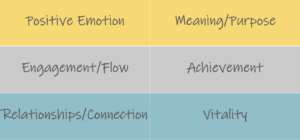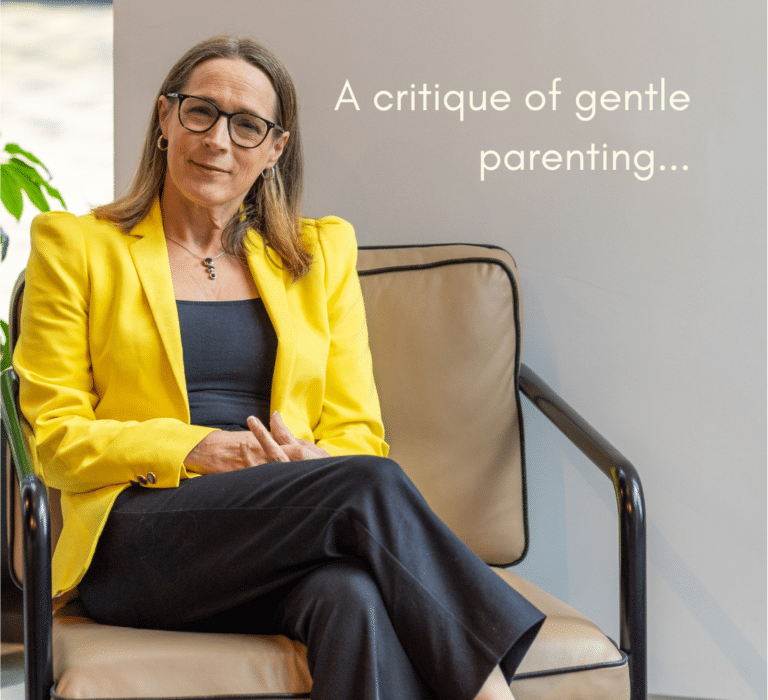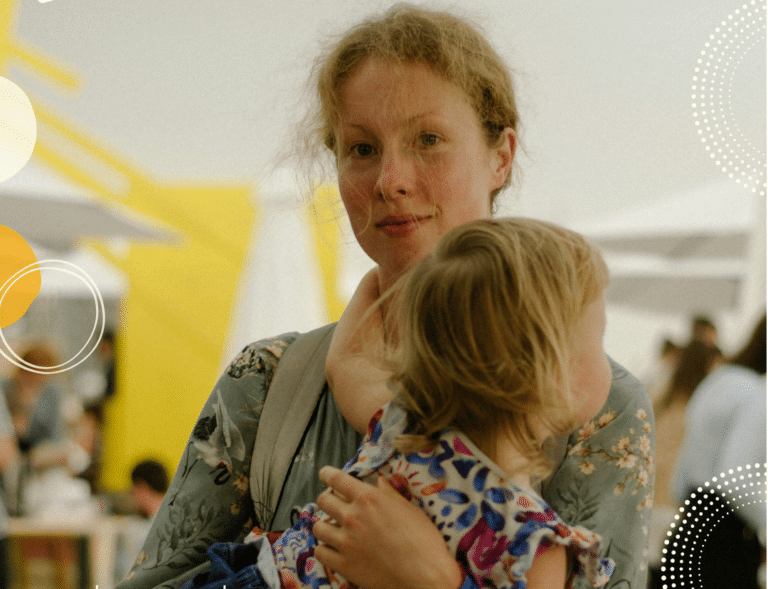How to be a happy working parent
This is an extract from a transcript of my talk on “Winning in Both Worlds: How to be a happy working parent“.
Positive psychology tells us that in order to be happy, we need these 6 ingredients to be present and active in our lives:
- Positive emotions – for example, love, joy and gratitude
- Engagement/Flow – that experience of being in the moment, or being wholeheartedly engaged and absorbed in an activity
- Relationships/Connection – feeling seen and heard by another person, sharing moments and experiences and knowing that you matter to someone
- Meaning/Purpose – knowing that your actions are driven by something important to your values, or that you are working towards something or contributing to a greater movement
- Achievement – a feeling of accomplishment, of getting stuff done that you are proud of
- Vitality – having energy and resources so you can meet the demands upon you
Everyone’s exact recipe for happiness is a little different (you might derive your positive emotions from walking in the woods while another person gets joy from playing board games). However, to be happy, all these ingredients need to present at least sometimes.
And of course, I’m talking about an overall sense of happiness here: we can’t feel joy every minute of every day – especially as a parent. Parenting will always involve some tears and tantrums and conflicts over boundaries. Happiness is not about the absence of any negatives or living an ideal life. In fact, it’s important to be comfortable with that gap between ideal and reality if we are actually going to be happy.
What gets in the way of happiness?
To feel like we are succeeding as a working parent, we really want these happiness ingredients to be present on both sides on the work/parenting equation. But the truth is, some of them can be easier to find on one side of the equation than the other.
For example, a sense of achievement is often a lot easier to get through work than through parenting. At work, we can meet targets, make sales, exceed expectations, go above and beyond for customers and feel appreciated and recognised for our efforts.
Parenting, on the other hand, is complex and messy. It involves balancing different needs, making decisions our children don’t like and not always being appreciated. Feeling a sense of achievement as a parent – like you are getting parenting ‘right’ – is often a transitory experience and is often followed by the complete opposite (when children get upset or don’t do what they are asked or we end up resorting to shouting because we are stressed!).
It’s hard to feel like you are achieving something or getting things done as a parent. We are so often interrupted mid-task and those tasks we do finish (like mealtime, bath time, bedtime) always need doing again the next day.
These continual interruptions, and constantly having to respond to others’ needs, can also interfere with other happiness ingredients such as our sense of engagement/flow and with our vitality. There is simply so much to do when you are a parent.
Be mindful of your parenting metrics
To be a happy working parent, we need to feel like we are somehow getting parenting right – overall, not every single time, but in general.
So, what would make you feel like you are getting it right? Think about it. Make a mental note. Jot it down on a piece of paper. What would make you feel like a successful parent?
This is a really important question because one of the big problems with modern parenting is that the performance metrics we use to judge ourselves are often unhelpful and lead us towards feeling like we are failing. Modern parents are bombarded with lists of things we MUST do if we are going to be judged as good parents. We must get our children to eat broccoli, they must play a musical instrument, play chess, take part in sport, they must be kind and happy and do well at school – and if they don’t meet their milestones, it’s our fault. It can feel like our children’s success is a direct result of our success or failure as parents.
As a result, many working parents feel like we are failing on one score or another. The performance metrics we set ourselves and the evidence we look for to judge our success as parents – these are fundamentally important. But because if we get sucked into all that noise about broccoli and chess and exams, we inevitably end up feeling like we are failing on one score or another. Because lots of children don’t like broccoli or chess and (by design) not all children can excel in exams.
When we get sucked into those types of parenting metrics, we can end up directing more energy towards cajoling reluctant children to do their homework or practise their violin or clean their teeth (or however we are judging ourselves) than we do towards connecting and creating a good relationship with them and building a happy family life.
To be a happy working parent, we need to let go of those metrics and focus on what really matters. A good relationship with our children. Being playful with them in ways we enjoy. Appreciating the privilege of walking alongside them in their lives.
If we can approach parenting in that way, then we have a much greater chance of feeling like we are succeeding. Every one of us can go home this evening and set ourselves the goal of doing one thing that builds relationship with our child. That might be a cuddle, a conversation, just listening. That’s one thing that’s totally do-able, that we can succeed at, and that will make us and our child happy.
Extracted from a transcript of my talk “Winning in Both Worlds: How to be a happy working parent“.
READ NEXT:








Leave a Reply